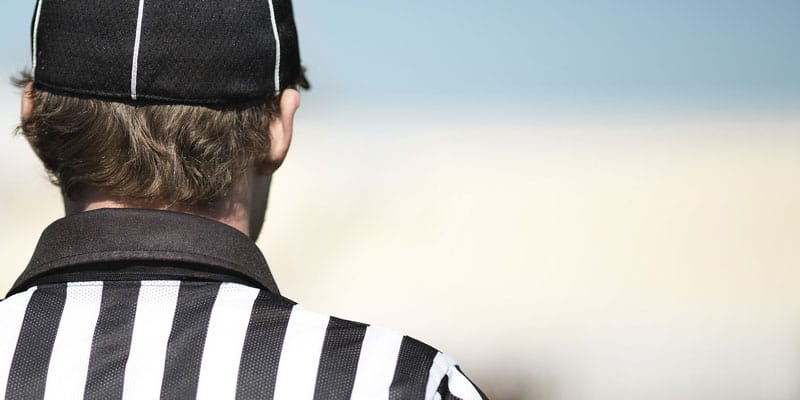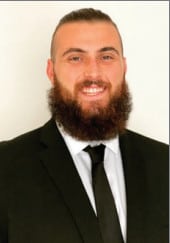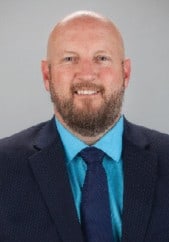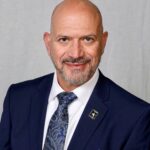Kyle Curran and Randy Curran say that insurance coverage and reimbursement sometimes hinge on meeting insurance companies’ seemingly superfluous requirements. Read about how knowing the rule book can help patients get treatment and clinicians get payment.
 by Kyle Curran & Randy Curran
by Kyle Curran & Randy Curran
Stop me if you’ve heard this one before. You know the medical insurance carrier covers the oral appliance, but they keep denying your authorizations and claims. When you call, you’re informed it’s been denied for a lack of proven medical necessity. Your team provided the sleep study and an order from a physician. What else could they need?
If you’ve been through this song and dance, rest easy, as this article will navigate you through the twists and turns of obtaining insurance coverage, and ultimately a payment.
The springboard for obtaining the proper documentation starts with a recent sleep study and an MD’s order (letter of medical necessity/Rx), but it doesn’t end there. Generally, documentation must be provided to satisfy the following requirements:
- The Apnea Hypopnea Index (AHI) or Respiratory Disturbance Index (RDI) is greater than or equal to 15 events per hour with a minimum of 30 events; or, the AHI or RDI is greater than or equal to 5 and less than or equal to 14 events per hour with a minimum of 10 events and documentation of:
- Excessive daytime sleepiness, impaired cognition, mood disorders, or insomnia; or hypertension, ischemic heart disease, or history of stroke; or,
- If the AHI >30 or the RDI >30 and meets either of the following (a or b):
- The beneficiary is not able to tolerate a positive airway pressure (PAP) device
- The treating practitioner determines that the use of a PAP device is contraindicated.
- There is absence of temporomandibular dysfunction or periodontal disease
Now, this is where things can get wacky. The pathways bifurcate, trifurcate, and veer from the core path with the mind-boggling addition of extra requirements. Here are a few sidewinders that could be delaying your cases:
-
-
-
-
- Aetna requires the sleep study to be scored using a 4% desaturation for hypopneas, and that needs to be documented on the report.
- BCBS FEP plans, as well as some standard BCBS plans in certain states, may require all patients to try PAP therapy first, no matter the severity of their OSA.
- UHC requires the patient to see a physician trained in sleep prior to granting They also require that the name and price of the appliance be on the physician’s order. form. They also add onto the dental requirements by stating that their patients must have:
- Sufficient dentition to allow for retention of appliance
- No active periodontal disease or dental decay
- No active temporomandibular joint disorder
- No restriction in mandibular opening or protrusion
-
- Several carriers require documentation from the patient stating that they would like to use the appliance over PAP therapy, regardless of the disease severity.
- Medicare requires the patient to meet with a treating practitioner prior to the sleep test. If Noridian is the administrator in your state, you will also want to be mindful of their Same and Similar Else, they will deny the claim if the patient has been billed for a PAP device or another appliance in the past five years. To overturn that denial, you will need some additional documentation.
- UHC Medicare Advantage/AARP will deny claims for being experimental or non-covered before conducting a medical review. To appeal the decision, they require the provider to sign a Waiver of Liability (WOL) and send it with the appeal and records. This WOL states that if the decision is upheld, the provider forfeits the right to bill the patient.
-
-
-
Contrary to popular belief, billing companies aren’t the bad guys.
These are some of the most common exceptions to the norm, but there are still other ones out there. That is why it’s pivotal to research the insurance policy first. This will ensure you prepare the proper documentation and you’re equipped if they incorrectly deny the case and you must submit an appeal. Always know the rules to the game you’re playing.
To properly position yourself moving forward, we recommend establishing a protocol that meets the requirements of the most stringent policies. If you have the following documents on file for every patient, your likelihood of receiving denials is greatly reduced:
-
-
-
-
- Face to face notes with a sleep physician. Currently, this can be a telemedicine visit.
- Sleep study scored with a 4% desaturation parameters
- Full comprehensive dental evaluation meeting UHC’s rigid requirements
- Statement of Therapy showing the patient chooses oral appliance therapy or is intolerant to PAP therapy
- Health history form with all relevant comorbid conditions, mood disorders, insomnia, impaired cognition, and an Epworth score.
-
-
-
Having these documents on file and being knowledgeable about the particular policy will create a much smoother authorization and claims process. You’re still likely to encounter denials and exceptions, but this will occur far less frequently. When it does happen, you will be well positioned to obtain additional documentation or confidently file an effective appeal.
Fortunately, as a dental practice, you have options. If this sounds challenging to you and seems to be a good use of your scarce resources, you can certainly begin learning each insurance carrier’s guidelines and designing the internal protocols with the strictest carrier in mind to ensure that all the patients will qualify for coverage.
There’s another option if this has your head spinning. You can hire a third-party service for billing and perhaps a third-party service for sleep testing, too. The billing service will ensure all documents are in order before submitting the prior authorization request or submitting a claim. Billing services only succeed when their practices succeed, so they stay on top of these policies and ensure practice compliance to meet the coverage criteria. Contrary to popular belief, billing companies aren’t the bad guys. They are just protecting you as a practice to ensure coverage and payment.
A sleep testing service may also be helpful as they will have sleep physicians readily available to help meet the strict coverage requirements that we are currently seeing from some carriers.
The onus is on each of us to know the rule book and meet the insurance companies’ seemingly superfluous requirements. Then patients get the treatment they need and you get the reimbursement you’ve earned.
For insurance coverage for oral appliances for sleep apnea and snoring, Rose Nierman points out the documentation needed for a multidisciplinary team. https://dentalsleeppractice.com/what-documentation-does-a-physician-want-from-a-dentist/
 Kyle Curran has been active in the Dental Sleep Medicine industry for the past five years and is currently the Director of Client Development at Pristine Medical Billing. During this time, Kyle has managed medical billing processes, training, and proper workflows for more than 100 dental practices across the nation. He stays abreast of the ever-changing field of medical insurance by participating in continuing education and practical experience. As a graduate with a business degree, he is able to help dental practices understand and implement practical business solutions to achieve sustainability in the Dental Sleep Medicine arena.
Kyle Curran has been active in the Dental Sleep Medicine industry for the past five years and is currently the Director of Client Development at Pristine Medical Billing. During this time, Kyle has managed medical billing processes, training, and proper workflows for more than 100 dental practices across the nation. He stays abreast of the ever-changing field of medical insurance by participating in continuing education and practical experience. As a graduate with a business degree, he is able to help dental practices understand and implement practical business solutions to achieve sustainability in the Dental Sleep Medicine arena. Randy Curran is the founder and CEO of Pristine Medical Billing. During the past 12 years, Randy has committed his life to helping those with sleep related breathing disorders obtain prior authorizations for coverage while ensuring providers receive fair compensation for care. Randy has been involved in the treatment of more than 38,000 patients while collecting over $85,000,000 for providers from insurance carriers through both contracting and claim submissions.
Randy Curran is the founder and CEO of Pristine Medical Billing. During the past 12 years, Randy has committed his life to helping those with sleep related breathing disorders obtain prior authorizations for coverage while ensuring providers receive fair compensation for care. Randy has been involved in the treatment of more than 38,000 patients while collecting over $85,000,000 for providers from insurance carriers through both contracting and claim submissions.


